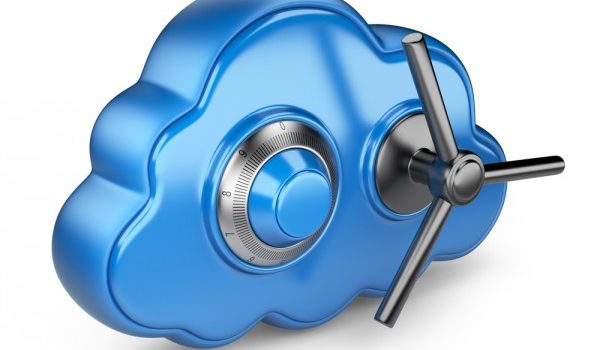How to Secure Your Cloud-based Applications and Websites from Cyber Security Attacks
We think our customers’ data and business information is safe if we store everything on the cloud. This is true to some extent and this kind of shift has also made businesses from small to big save a lot of money by reducing their IT expenses, access scalable tools, and reduction of on-site load of their IT infrastructure. According to CSA (Cloud Security Alliance), nearly 70% of the businesses across the globe now operate in the cloud.
With benefits like great flexibility, automatic software updates, etc. the number 70%, isn’t that big. However, the even cloud has its own downsides of storing apps that have loads and loads of data. That is the main reason the remaining 30% business owners are still in dilemma whether to go on the cloud or not as they cannot make a move without stringent security practices in place.
Today, we will discuss the top most security tips for cloud-based applications you should be aware of.
Develop a Threat Model
Develop a threat model for every cloud app you are taking into consideration. Find out the potential ones both in technical and business, no matter whether they can be exploited or not. Interpret usage situations where such attacks may take place and cause that might outcome.
Prepared for Shared Threats
Pick the standard of risk tolerance your company is fine with when utilizing services that depend upon a multi-tenancy strategy. This should be depending upon your understanding of the multi-tenancy strategy and the related shared technology threats. Frankly, be prepared that your firm may be uncovered to risk if one of the other clients of the cloud-based service is compromised.
Use Robust Authentication Tools
Secure all your business details and you customers’ information against credential hijack from external hackers through strong authentication tools. Take some extra measures like two-factor authentication and OTPs (One-time password). These can act like an added layer of security when users try to connect from a variety of devices through public WiFi and hotspots.
Activate DDOS Security
In order to not to have a situation of multiple compromised systems, ensure that Distributed Denial of Service (DDoS) Protection is activated. Have a reliable, strong cloud-based model to DDoS monitoring, detection, and diminish the attacks.
Utilize Incident Response Procedures
Find out what could be the incident response procedures for your business and deploy them immediately. Such procedures should be made upon by our cloud service provider. Wondering what could it do? Well, having such procedures in place certainly will outline the shared duties between the client and the cloud service provider and hence, they will make sure such incidents are taken care of and filed in a timely manner.
When it comes to the cloud security, one thing doesn’t work. You should implement as much as you can since technology depends on the human factor to make it work at the same time it can also be compromised on the same factor.
Just like your physical office, your website is also the same. But in this case, you will not see anyone barge in unless you have complete security systems in place. Digital thieves are everywhere – Unseen and quick. Even iOS and Android development companies are into finding ways to prevent such malicious digital attacks. They search for weak security systems and cannot fight against such hackers. Usually, electronic thieves hack target websites for cash and sensitive information of customers and clients.
You may think that your business can not be targeted because you don’t have anything to lose or yours is a too small business to target. But that is not true. Hackers never target businesses based on their size instead of the only look for information and how much valuable it is.
However, by taking some precautions, you can protect your business and information against such eavesdroppers.
- Keep the Right & Best Technologies in Place
First of all, you need to make sure that your firewall is strong enough to protect your network. Ensure your system is secured with good, unidentifiable passwords that need two-factor authentication for employees to get access to any kind of sensitive information. Install cyber protection software in your systems that chases all kinds of viruses and malware activities on your website and also while your browse the internet.
- Encrypt Your Data
No matter whether it is bank routing numbers, social security numbers, or even your credit/debit card details, cipher all such confidential data so that eavesdroppers won’t be able to steal your money. Once the encryption is activated, every single data or information will be encrypted but the only problem is that this encryption applies in a situation when the users are logged out of their systems. Which means that the eavesdroppers are still at large and can attack your systems via viruses and malware while our employees are still working. So in such scenarios, setting your systems to automatically log out every 10-20 minutes will help you solve this.
- Never Store More Than What You Need
Of course, you can store your customers or clients data and there is nothing with it. But saving your customers sensitive data such as credit card or debit card numbers when you don’t need it is like handing your company’s valuable information to hackers on a platter. Make it a security policy to evict customer records from your database once the data is no longer needed for your business.
- Teach Your Employees How to Prevent Threats
Usually, security breaches do occassional take place because employees unintentionally or unknowingly visit any website or open files that are filled with viruses. That is why it is important to teach and train your employees how to stay away from such attacks. Supply them with the best practices such as robust password protection and protect networks especially when working from a remote place. Teaching your employees on how to avoid such security breaches can help your business from many such attacks.
Do you any other practices? Has your website been attacked? What did you do? Please let us know how your experience was and how you dealt with it by commenting in the section below so that it could help your fellow business owners too.

















